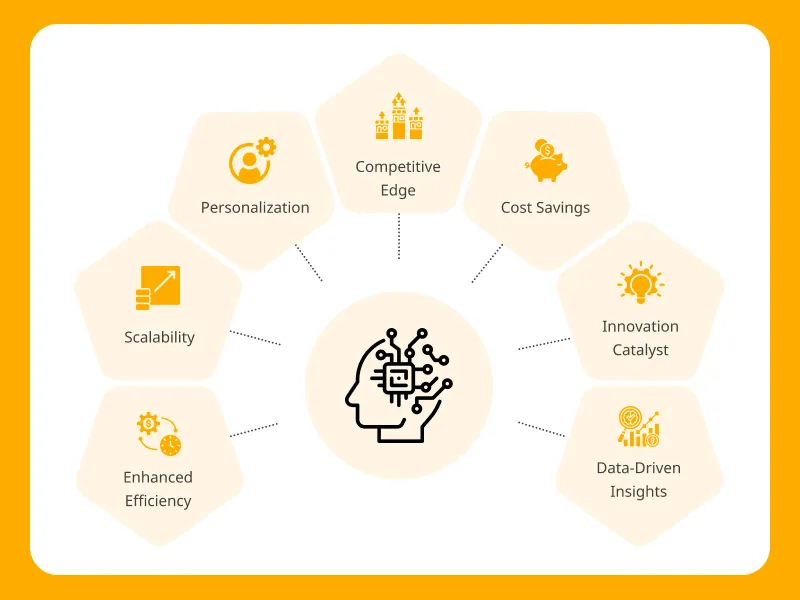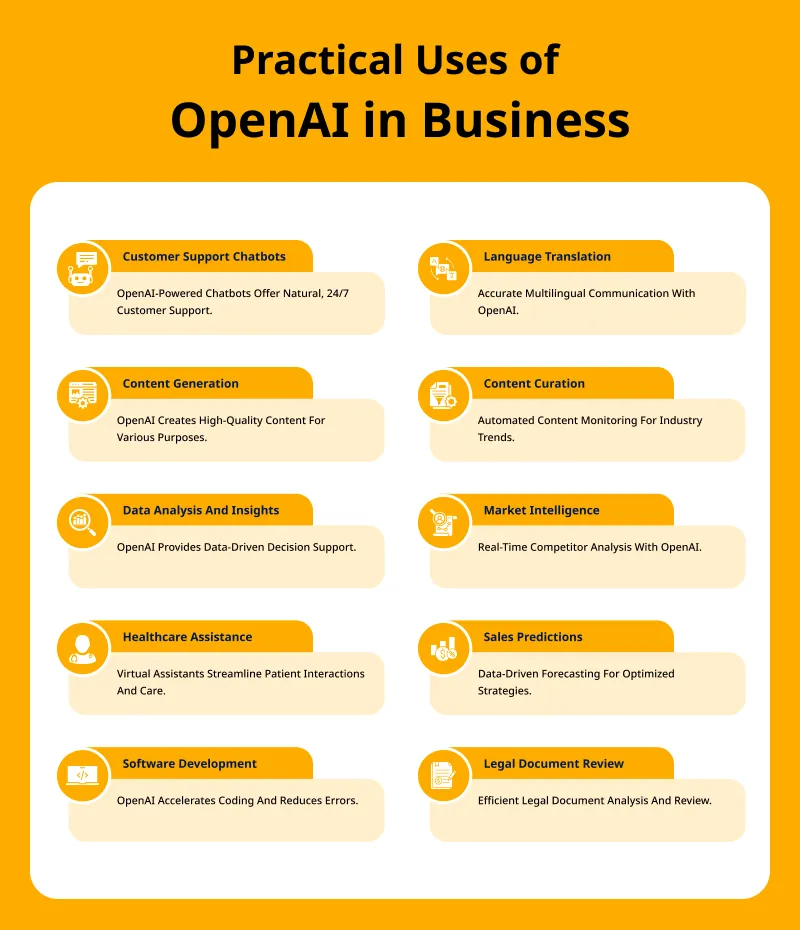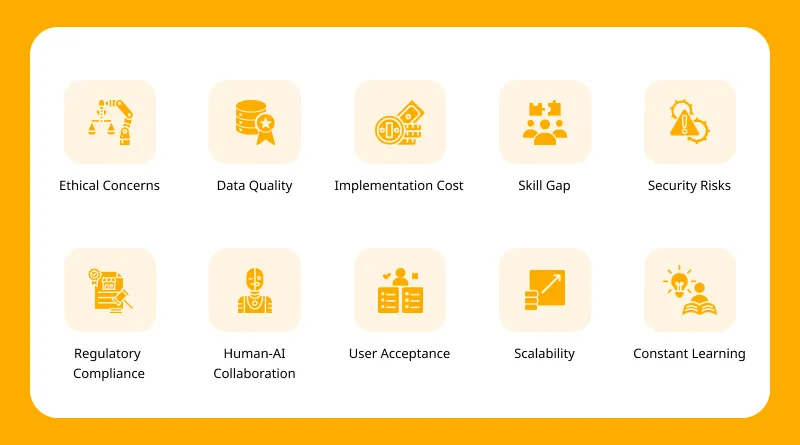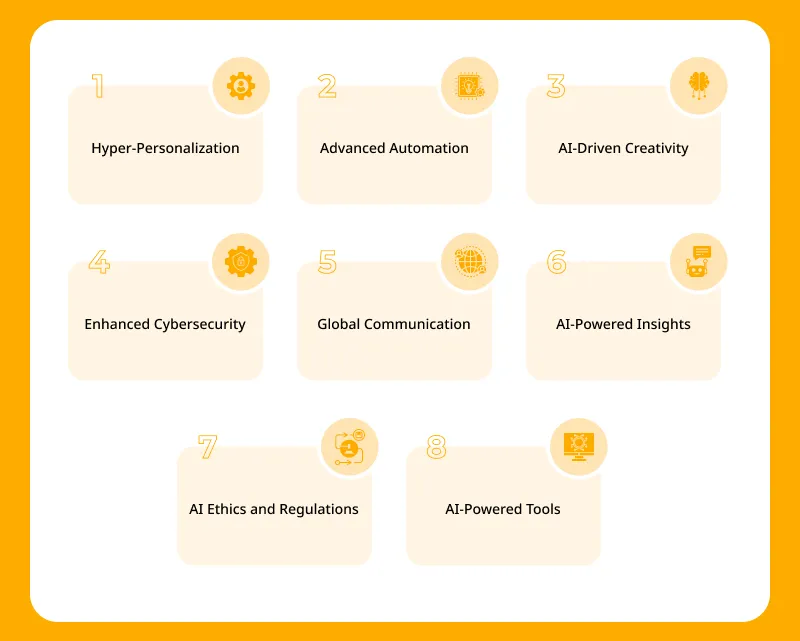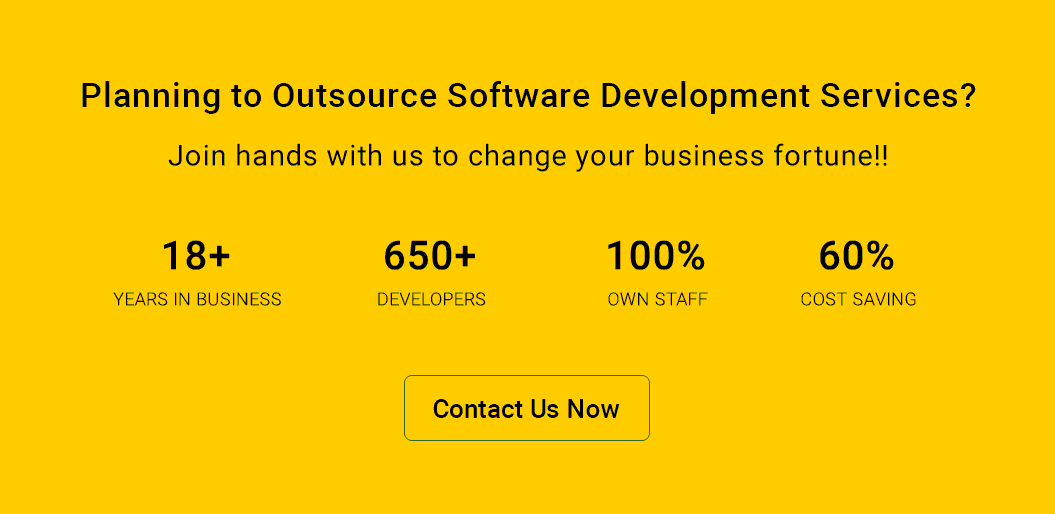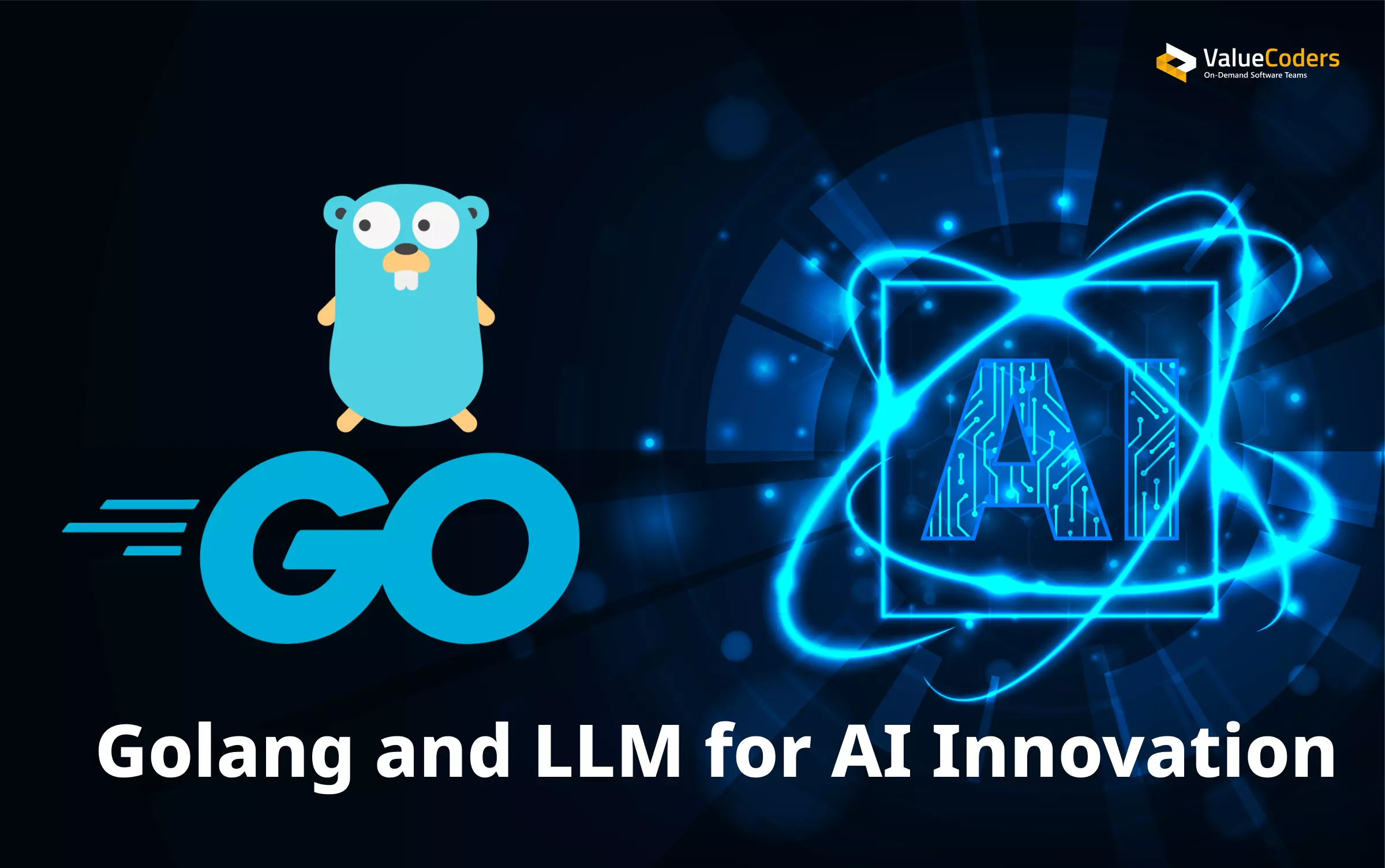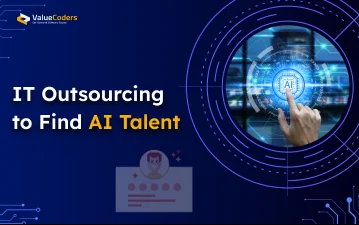Are you ready to harness the incredible power of OpenAI to transform your business? In an era where data and technology are driving innovation at an unprecedented pace, leveraging OpenAI in business has become not just an option but a necessity.
With a staggering 98% of companies actively investing in AI, it’s clear that the business landscape is developing.
The comprehensive guide explores the complexities of OpenAI applications, their strategic advantages, and how they can be practically applied to drive success in various industries.
Whether you’re a seasoned entrepreneur or a startup enthusiast, understanding how to unlock the full potential of OpenAI is the key to staying competitive in today’s dynamic market.
Explore the limitless possibilities of OpenAI and address the challenges of integrating OpenAI deployment into your business operations.
Understanding OpenAI
OpenAI is not just a buzzword; it’s a technological marvel reshaping how businesses operate.
But what exactly is OpenAI, and how can it be a game-changer for your enterprise?
In simple words, OpenAI is a cutting-edge artificial intelligence system designed to mimic human-like language generation and problem-solving capabilities. It’s not just about crunching numbers; it’s about comprehending and generating human language with remarkable accuracy by partnering with a generative AI development company.
Let our experts guide you through the benefits and applications.
Now, let’s break it down further.
OpenAI relies on vast neural networks, interconnected nodes inspired by the human brain. These networks analyze colossal datasets to learn the nuances of human language and behavior, enabling them to generate almost indistinguishable text from what a human would write.
So, why is its understanding crucial for leveraging OpenAI in business? Because it holds the key to automating tasks, improving customer interactions, and even generating content more efficiently.
In our journey to explore the strategic benefits and practical OpenAI use cases in business, grasping the fundamentals is the foundation.
Also read: Winning With AI And Machine Learning Frameworks
The Strategic Benefits of OpenAI
Leveraging OpenAI in business isn’t just a tech-savvy trend; it’s a strategic move that can redefine your company’s trajectory. Let’s delve into the tangible benefits that make OpenAI a strategic powerhouse.
Enhanced Efficiency:
OpenAI’s ability to automate tasks goes beyond simple processes. It can handle complex tasks like data analysis, report generation, and content creation. By automating these tasks, businesses can:
- Significantly reduce human error
- Improve accuracy
- Free up valuable human resources for more creative and strategic roles
Scalability:
One of the key advantages of OpenAI is its scalability for AI-powered business solutions. It can adapt to the changing business needs. OpenAI can process and analyze larger datasets as your operations grow, ensuring your systems remain efficient and effective even as you expand.
Personalization:
OpenAI’s natural language understanding capabilities enable businesses to offer highly personalized AI-powered customer service experiences. By analyzing customer data, OpenAI can generate customized product recommendations, create tailored marketing messages, and even engage in conversational interactions through chatbots, enhancing customer satisfaction and loyalty.
Competitive Edge:
Staying ahead of the competition is crucial in today’s fast-paced business landscape. OpenAI provides a competitive advantage by enabling quicker decision-making through data analysis, rapid content generation, and efficient customer service. This ability allows businesses to respond to market changes and customer demands swiftly.
Cost Savings:
Automation through OpenAI not only improves efficiency but also reduces operational costs for generative AI consulting services. Businesses can save on labor expenses by automating routine tasks, and the ability to make data-driven decisions can lead to optimized resource allocation, further driving cost savings.
Our consultants are here to help you lead the change.
Innovation Catalyst:
By taking over repetitive and time-consuming tasks, OpenAI helps employees to focus on more creative and innovative endeavors. It can assist researchers by analyzing vast datasets, generating ideas for content, and providing insights that can spark new product development or business strategies.
Data-Driven Insights:
OpenAI’s data analysis capabilities give businesses a deeper understanding of their markets, customers, and trends. This data-driven approach enhances strategic planning, allowing companies to make informed decisions, identify emerging opportunities, and allocate resources effectively.
Leveraging OpenAI in business empowers organizations to:
- Operate more efficiently
- Respond faster to market dynamics
- Personalize customer experiences
- Reduce costs and foster innovation
- Make data-driven decisions
These strategic benefits position businesses for sustainable growth and competitiveness in an increasingly AI-driven world.
Also read: AI App-Titude: How To Find Your App’s Perfect AI Model
Practical Uses of OpenAI in Business
Leveraging OpenAI in business isn’t just a futuristic concept; it’s a practical reality with various applications across various industries. Let’s explore some concrete ways in which OpenAI is making a difference in the corporate world:
Customer Support Chatbots:
When you hire AI engineers, OpenAI-powered chatbots are more than just automated responders. Customers can interact with them like humans, answer frequently asked questions, provide detailed product information, and troubleshoot issues.
This improves customer satisfaction while allowing businesses to offer round-the-clock support without a large support team.
Content Generation:
OpenAI’s content generation capabilities are versatile. It can produce high-quality content for various purposes, including blog posts, product descriptions, marketing emails, and social media posts.
Content generated by OpenAI machine learning for business is often indistinguishable from content written by humans, allowing businesses to conserve time and resources while maintaining quality.
Be a pioneer in your industry by harnessing the power of OpenAI.
Data Analysis and Insights:
OpenAI can process and analyze large datasets, extracting valuable insights. This includes sentiment analysis of customer feedback, market trends, and predictive analytics. Businesses can utilize these insights to make data-driven decisions, identify opportunities, and optimize strategies.
Healthcare Assistance:
OpenAI-powered generative AI services virtual assistants in the healthcare sector can handle patient inquiries, schedule appointments, and provide accurate medical information. AI in Healthcare assist medical professionals in managing administrative tasks, improving patient engagement, and delivering timely care.
Check out our blog on ChatGPT opportunities in Healthcare for a deeper exploration of this use case.
Software Development:
OpenAI assists software developers by generating code snippets, writing documentation, and even helping with debugging. It accelerates the development process, reduces coding errors, and aids in automating routine coding tasks.
Explore our Top 10 Use Cases In Software Development blog for further insights.
Language Translation:
OpenAI’s language capabilities extend to translation services. It can accurately translate text between multiple languages, enabling businesses to communicate effectively with a global audience and expand their market reach.
Content Curation:
OpenAI can scan the internet for relevant content based on specific keywords and criteria. It automates content curation, helping an AI development company in India or global businesses stay informed about industry trends, competitor activities, and emerging news for updated content marketing strategies.
Market Intelligence:
By monitoring competitors’ websites, social media, and online activities, OpenAI provides real-time market updates with artificial intelligence in business. They can track competitors’ strategies, pricing changes, and customer sentiment, allowing for informed decision-making and adjustments to stay competitive.
Explore the limitless possibilities of OpenAI and drive innovation and growth.
Sales Predictions:
OpenAI’s data analysis capabilities can be applied to historical sales data to forecast future trends and demand patterns. This aids in optimizing inventory management, pricing strategies, and marketing campaigns.
Legal Document Review:
OpenAI can review and analyze legal documents, contracts, and agreements in the legal sector. It assists lawyers by highlighting key clauses, potential risks, and inconsistencies, making the document review process more efficient while reducing error risk.
These practical uses of leveraging OpenAI in businesses are transforming industries by automating tasks, improving decision-making, enhancing customer interactions, and streamlining various business processes.
Also read: How AI In Business Process Automation Is Changing The Game
Challenges and Considerations of OpenAI in Businesses
While leveraging OpenAI in business offers remarkable advantages, it also comes with a set of challenges and crucial considerations:
Ethical Concerns:
OpenAI systems can inadvertently perpetuate biases present in their training data. Businesses must actively address bias, prioritize fairness, and ensure that OpenAI applications align with ethical standards to avoid discrimination and harm.
Data Quality:
Garbage in, garbage out. OpenAI’s effectiveness relies on the quality of the data it’s trained on. Businesses must maintain clean, accurate, and unbiased data to ensure reliable and trustworthy AI-driven decisions.
Cost of Implementation:
Implementing and maintaining AI systems, including OpenAI and ChatGPT integration services, can be resource-intensive. Businesses need to carefully weigh the costs against the expected benefits, considering factors like infrastructure, software, and personnel expenses.
Skill Gap:
The need for more AI talent poses challenges. Businesses may need help finding and retaining skilled AI professionals who can effectively develop, deploy, and manage OpenAI systems, which are essential for success.
Although, you don’t need to worry. ValueCoders offers expert ChatGPT development and integration services for leveraging OpenAI in business.
Security Risks:
OpenAI systems can be vulnerable to adversarial attacks or data breaches. To protect their AI infrastructure, businesses must invest in robust cybersecurity measures, including threat detection and response strategies.
Regulatory Compliance:
The evolving regulatory landscape surrounding AI and data privacy adds complexity. Businesses must stay informed about local and international laws to ensure compliance and avoid legal problems related to AI usage.
Also read: What Are The Top AI Software Development Tools?
Human-AI Collaboration:
Determining the optimal division of tasks between humans and AI can be challenging while leveraging OpenAI in business. Striking the right balance, where AI enhances human capabilities rather than replacing them, requires thoughtful planning and consideration.
User Acceptance:
Resistance to AI integration among customers and employees can hinder adoption. Transparent communication, user-friendly interfaces, and comprehensive training programs are necessary to gain user acceptance and trust.
Scalability:
As businesses grow, their AI systems must scale accordingly. Ensuring that OpenAI solutions can handle increased volumes and complexity is essential to maintain efficiency and effectiveness.
Constant Learning:
OpenAI technologies evolve rapidly, introducing new capabilities and challenges. Businesses must remain agile, invest in ongoing learning and development, and adapt their strategies to stay competitive in the dynamic AI landscape.
Addressing these challenges and considerations requires a holistic approach that combines technological readiness, ethical responsibility, compliance, and talent management.
It’s crucial for businesses to proactively tackle these issues to unlock the full potential of OpenAI integration while mitigating risks and ensuring responsible OpenAI deployment.
Also read: Top AI Development Companies & Trends
The Future of OpenAI in Business
As we explore the horizon of technology, the role of leveraging OpenAI in business is set to become increasingly transformative. Here’s a glimpse into the future and what it holds:
Hyper-Personalization: OpenAI will lead to hyper-personalized customer experiences. Businesses will use AI to tailor products, services, and marketing to individual preferences with unprecedented precision.
Advanced Automation: AI in automation industry, powered by OpenAI, will extend to complex decision-making processes with advanced applications. Expect AI to handle intricate tasks, freeing up human talent for innovation and strategy.
AI-Driven Creativity: OpenAI’s creative capabilities will flourish. AI will be integral to content creation and artistic endeavors, from generating art and music to crafting compelling narratives.
Enhanced Cybersecurity: AI-powered business solutions will play a pivotal role in identifying and mitigating cybersecurity threats. OpenAI will continuously monitor and adapt to evolving security challenges.
Global Communication: Language barriers will erode further. OpenAI’s language translation capabilities will make global communication seamless, fostering international collaborations and market expansions.
AI-Powered Insights: Businesses will rely heavily on OpenAI for data analysis and predictive insights. It will drive informed decision-making and give organizations a competitive edge.
AI Ethics and Regulations: With the increased adoption of artificial intelligence in business, ethical and regulatory considerations will intensify. Businesses will need to navigate these complexities while leveraging OpenAI responsibly.
AI-Powered Tools: Tools like ChatGPT will become ubiquitous in business operations. They will assist in customer interactions, automate administrative tasks, and enhance productivity.
The future of leveraging OpenAI in business is a landscape where innovation knows no bounds. As businesses increasingly integrate AI into their operations, they’ll unlock new efficiencies, tap into uncharted markets, and create previously thought-impossible experiences.
It’s a future where AI empowers human potential, revolutionizing industries and shaping a new era of business.
Explore our blog on “AI-Powered Future: Revolutionizing Businesses With Tools Like ChatGPT” to delve deeper into this exciting trajectory.
Conclusion
One thing is crystal clear in the ever-evolving business landscape: the future belongs to those who embrace change. Leveraging OpenAI in business isn’t just a choice; it’s the key to unlocking unparalleled efficiency, innovation, and growth. As we’ve explored the strategic benefits and practical uses, it’s evident that OpenAI is a game-changer.
Are you ready to revolutionize your business? Don’t miss out on the transformative potential of leveraging OpenAI in business. It’s time to take action and lead the way in your industry. Start your journey towards a brighter future now.
Contact Valuecoders to harness the power of OpenAI for your business’ success. Your future awaits!



